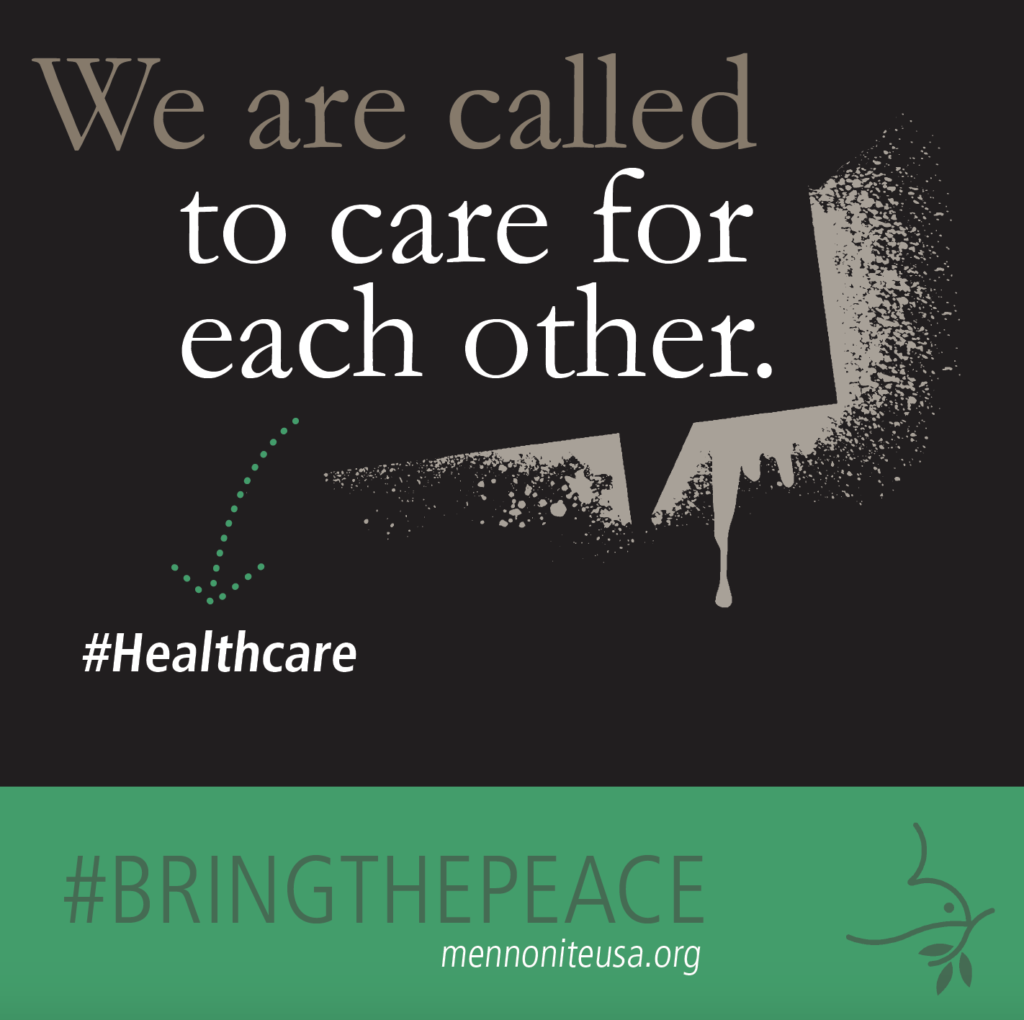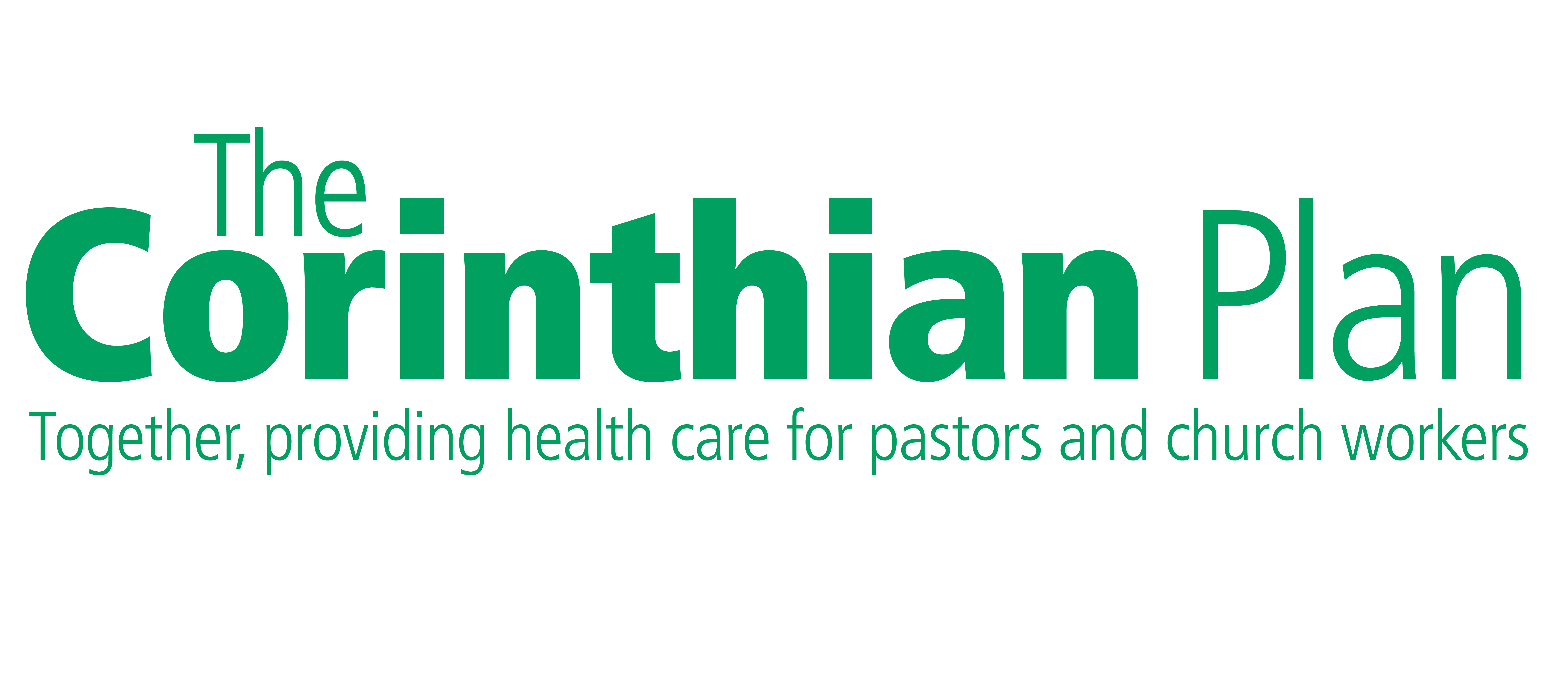
Duncan Smith is director of The Corinthian Plan for Mennonite Church USA
_______________
“…as a denomination, we are committed in principle to providing basic health insurance for all eligible pastors.” These words are from a resolution at the San Jose 2007 MC USA convention, and they set in motion the formation of The Corinthian Plan, MC USA sponsored health coverage and other benefits. This delegate action was in direct response to the high level of uninsured pastors in the denomination.
This was before the Affordable Care Act was in full motion. MC USA was ahead of the curve in addressing important health coverage issues of the day. The goal was to provide “Comprehensive coverage, without pre-existing condition exclusions, that would be accessible and affordable for congregational staff.” Many wondered if a small pool could be successful, and there were challenges, but eleven years later the structure and the commitment of those participating has made it work!
Key to understanding The Corinthian Plan are the mutual aid aspects.
First, a concept you may know but not by name is “community pricing.” This means that no one person bears the effect of medical issues or high claims. Instead, these claim expenses are spread across the entire Corinthian Plan pool. Many of us remember the day when exorbitant increases in insurance coverage would hit people at the worst possible time — when they were in the middle of a health crisis. “Community pricing” means that rather than “punish” by raising rates on a person and their family just when they are being physically and financially challenged, the ‘burden” is carried in a more “graceful” way across the community.
Another important aspect of The Corinthian Plan structure are available subsidies from the Fair Balance Fund. This Fund is available for congregations that might be challenged to pay their full premium. Uniquely, congregations in The Corinthian Plan fund this by their contributions through a specific formula based on average attendance. This means larger congregations, that often have more means, contribute more.
 The overall structure of The Corinthian Plan has allowed for a relatively small pool, currently 728 persons, to grow into a strong financial position. The Corinthian Plan Board works hard to make decisions that keep costs down for participants and The Corinthian Plan in the sound financial position in order to operate. For example, last year the base rate premium increase was 0.0%.
The overall structure of The Corinthian Plan has allowed for a relatively small pool, currently 728 persons, to grow into a strong financial position. The Corinthian Plan Board works hard to make decisions that keep costs down for participants and The Corinthian Plan in the sound financial position in order to operate. For example, last year the base rate premium increase was 0.0%.
In addition, The Corinthian Plan were also able to offer a premium holiday in May 2020, recognizing the economic impact of COVID-19. Congregations received a bill of $0. Not every year will look like this, as participants know, but in normal years the goal is not to make money, but to break even. After all, The Corinthian Plan is funded by the premiums of participants.
As Corinthian Plan director, I was overwhelmed with gratitude at congregational and participant response at the time of the premium holiday. Congregations were invited to give toward an ongoing COVID-19 assistance fund from what they received in their premium holiday. They did to the tune of over $111,000! This COVID assistance is available for participating Corinthian Plan congregations or conference offices.
Finally, I had never expected to be in the position of overseeing a health coverage plan and its benefits. It has been my pleasure to do so and to experience the growing strength of The Corinthian Plan. I am grateful to the partnership with Everence as third-party administrator. I am also grateful to the Church Benefits Board for working together at the ongoing challenges to meet the mandate of the delegates to provide access to affordable and comprehensive health coverage.
November and December is open enrollment period for congregations or conference offices to join The Corinthian Plan. Inquiries, without expectations of joining are welcome.
Learn more about The Corinthian Plan here.


